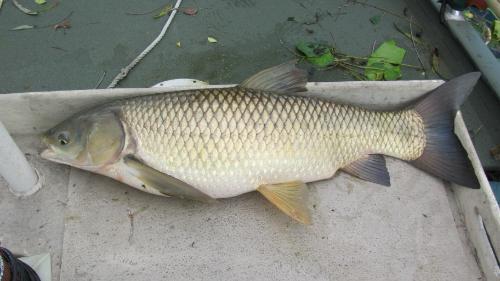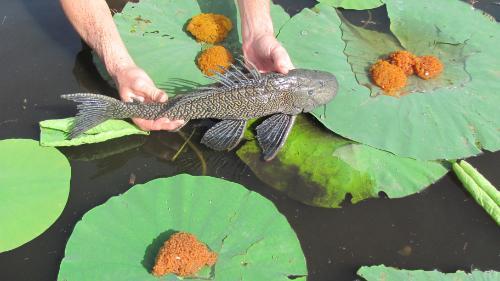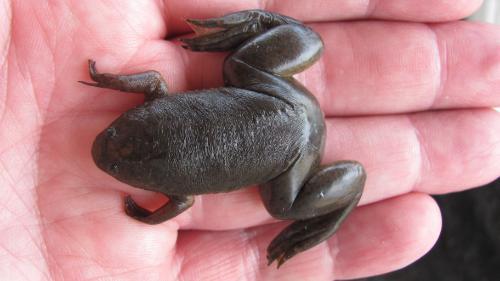Plecostomus and egg masses
Tropical clawed frog

Grass carp
Non-native Species Extension
Non-native species are important to the aquaculture and aquarium industries in Florida and the United States. Some non-natives support important recreational and commercial fisheries and some are used for aquatic weed control. Unfortunately, some non-native fishes and other aquatic animals have escaped from culture, been released by hobbyists, or have entered the environment through other pathways. Of this group of introduced species, some establish populations, some spread, and a few can become problematic for Florida’s environment, economy, and human health/quality of life.
The extension program includes two main components: (1) reducing the risks and improving management of non-native aquatic species and (2) fish identification, taxonomic, and biological resources. Extension personnel at the TAL work closely with the aquaculture industry (Florida Tropical Fish Farms Association, Florida Aquaculture Association, National Aquaculture Association, and others), the aquarium industry, regulatory agencies (Florida Department of Agriculture and Consumer Services, Florida Fish and Wildlife Conservation Commission, U.S. Fish and Wildlife Service, and others), the Florida Invasive Species Partnership (including the CISMA, Cooperative Invasive Species Management Area, system), and county and Sea Grant extension faculty to help inform management ranging from early detection (EDRR, Early Detection and Rapid Response), control, and eradication efforts; to compliance with and implementation of Best Management Practices; to regulatory decisions. An overarching program involves providing technical expertise on the implementation and interpretation of risk assessment and risk screening tools for advising agencies and industry to reduce the risks of potentially invasive species while simultaneously identifying species that are of lower risk of invasiveness.


